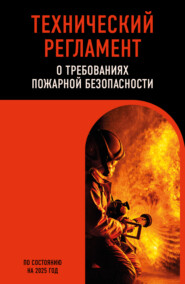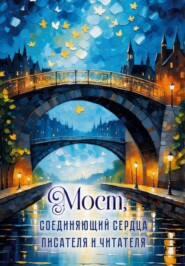По всем вопросам обращайтесь на: info@litportal.ru
(©) 2003-2024.
✖
International Short Stories: French
Настройки чтения
Размер шрифта
Высота строк
Поля
I called a conveyance and Accompanied her as far as the Rue des Fosses-Saint-Bernard, where I got out and left her to pursue her way alone. All the way we lay mutely wrapped in each other's arms, mingling tears with our kisses.
After leaving the carriage, I stood as if rooted to the ground. I heard Solange call me, but I dared not go to her, because her face, moist with tears, and her hysterical manner were calculated to attract attention.
Utterly wretched, I returned home, passing the entire day in writing to Solange. In the evening I sent her an entire volume of love-pledges.
My letter had hardly gone to the post when I received one from her.
She had been sharply reprimanded for coming late; had been subjected to a severe cross-examination, and threatened with forfeiture of her next holiday. But she vowed to join me even at the cost of her place. I thought I should go mad at the prospect of being parted from her a whole week. I was more depressed because a letter which had arrived from her father appeared to have been tampered with.
I passed a wretched night and a still more miserable day.
The next day the weather was appalling. Nature seemed to be dissolving in a cold, ceaseless rain – a rain like that which announces the approach of winter. All the way to the laboratory my ears were tortured with the criers announcing the names of the condemned, a large number of men, women, and children. The bloody harvest was over-rich. I should not lack subjects for my investigations that day.
The day ended early. At four o'clock I arrived at Clamart; it was almost night.
The view of the cemetery, with its large, new-made graves; the sparse, leafless trees that swayed in the wind, was desolate, almost appalling.
A large, open pit yawned before me. It was to receive to-day's harvest from the Place de la Révolution. An exceedingly large number of victims was expected, for the pit was deeper than usual.
Mechanically I approached the grave. At the bottom the water had gathered in a pool; my feet slipped; I came within an inch of falling in. My hair stood on end. The rain had drenched me to the skin. I shuddered and hastened into the laboratory.
It was, as I have said, an abandoned chapel. My eyes searched – I know not why – to discover if some traces of the holy purpose to which the edifice had once been devoted did not still adhere to the walls or to the altar; but the walls were bare, the altar empty.
I struck a light and deposited the candle on the operating-table on which lay scattered a miscellaneous assortment of the strange instruments I employed. I sat down and fell into a reverie. I thought of the poor queen, whom I had seen in her beauty, glory, and happiness, yesterday carted to the scaffold, pursued by the execrations of a people, to-day lying headless on the common sinners' bier – she who had slept beneath the gilded canopy of the throne of the Tuileries and St. Cloud.
As I sat thus, absorbed in gloomy meditation, wind and rain without redoubled in fury. The rain-drops dashed against the window-panes, the storm swept with melancholy moaning through the branches of the trees. Anon there mingled with the violence of the elements the sound of wheels.
It was the executioner's red hearse with its ghastly freight from the Place de la Révolution.
The door of the little chapel was pushed ajar, and two men, drenched with rain, entered, carrying a sack between them.
"There, M. Ledru," said the guillotinier; "there is what your heart longs for! Be in no hurry this night! We'll leave you to enjoy their society alone. Orders are not to cover them up till to-morrow, and so they'll not take cold."
With a horrible laugh, the two executioners deposited the sack in a corner, near the former altar, right in front of me. Thereupon they sauntered out, leaving open the door, which swung furiously on its hinges till my candle flashed and flared in the fierce draft.
I heard them unharness the horse, lock the cemetery, and go away.
I was strangely impelled to go with them, but an indefinable power fettered me in my place. I could not repress a shudder. I had no fear; but the violence of the storm, the splashing of the rain, the whistling sounds of the lashing branches, the shrill vibration of the atmosphere, which made my candle tremble – all this filled me with a vague terror that began at the roots of my hair and communicated itself to every part of my body.
Suddenly I fancied I heard a voice! A voice at once soft and plaintive; a voice within the chapel, pronouncing the name of "Albert!"
I was startled.
"Albert!"
But one person in all the world addressed me by that name!
Slowly I directed my weeping eyes around the chapel, which, though small, was not completely lighted by the feeble rays of the candle, leaving the nooks and angles in darkness, and my look remained fixed on the blood-soaked sack near the altar with its hideous contents.
At this moment the same voice repeated the same name, only it sounded fainter and more plaintive.
"Albert!"
I bolted out of my chair, frozen with horror.
The voice seemed to proceed from the sack!
I touched myself to make sure that I was awake; then I walked toward the sack with my arms extended before me, but stark and staring with horror. I thrust my hand into it. Then it seemed to me as if two lips, still warm, pressed a kiss upon my fingers!
I had reached that stage of boundless terror where the excess of fear turns into the audacity of despair. I seized the head and collapsing in my chair, placed it in front of me.
Then I gave vent to a fearful scream. This head, with its lips still warm, with the eyes half closed, was the head of Solange!
I thought I should go mad.
Three times I called:
"Solange! Solange! Solange!"
At the third time she opened her eyes and looked at me. Tears trickled down her cheeks; then a moist glow darted from her eyes, as if the soul were passing, and the eyes closed, never to open again.
I sprang to my feet a raving maniac, I wanted to fly; I knocked against the table; it fell. The candle was extinguished; the head rolled upon the floor, and I fell prostrate, as if a terrible fever had stricken me down – an icy-shudder convulsed me, and, with a deep sigh, I swooned.
The following morning at six the grave-diggers found me, cold as the flagstones on which I lay.
Solange, betrayed by her father's letter, had been arrested the same day, condemned, and executed.
The head that had called me, the eyes that had looked at me, were the head, the eyes, of Solange!
THE BIRDS IN THE LETTER-BOX
BY RENE BAZIN
Nothing can describe the peace that surrounded the country parsonage. The parish was small, moderately honest, prosperous, and was used to the old priest, who had ruled it for thirty years. The town ended at the parsonage, and there began meadows which sloped down to the river and were filled in summer with the perfume of flowers and all the music of the earth. Behind the great house a kitchen-garden encroached on the meadow. The first ray of the sun was for it, and so was the last. Here the cherries ripened in May, and the currants often earlier, and a week before Assumption, usually, you could not pass within a hundred feet without breathing among the hedges the heavy odor of the melons.
But you must not think that the abbé of St. Philémon was a gourmand. He had reached the age when appetite is only a memory. His shoulders were bent, his face was wrinkled, he had two little gray eyes, one of which could not see any longer, and he was so deaf in one ear that if you happened to be on that side you just had to get round on the other.
Mercy, no! he did not eat all the fruits in his orchard. The boys got their share – and a big share – but the biggest share, by all odds, was eaten by the birds – the blackbirds, who lived there very comfortably all the year, and sang in return the best they could; the orioles, pretty birds of passage, who helped them in summer, and the sparrows, and the warblers of every variety; and the tomtits, swarms of them, with feathers as thick as your fingers, and they hung on the branches and pecked at a grape or scratched a pear – veritable little beasts of prey, whose only "thank you" was a shrill cry like a saw.
Even to them, old age had made the abbé of St. Philémon indulgent. "The beasts cannot correct their faults," he used to say; "if I got angry at them for not changing I'd have to get angry with a good many of my parishioners!"
And he contented himself with clapping his hands together loud when he went into his orchard, so he should not see too much stealing.
Then there was a spreading of wings, as if all the silly flowers cut off by a great wind were flying away; gray, and white, and yellow, and mottled, a short flight, a rustling of leaves, and then quiet for five minutes. But what minutes! Fancy, if you can, that there was not one factory in the village, not a weaver or a blacksmith, and that the noise of men with their horses and cattle, spreading over the wide, distant plains, melted into the whispering of the breeze and was lost. Mills were unknown, the roads were little frequented, the railroads were very far away. Indeed, if the ravagers of his garden had repented for long the abbé would have fallen asleep of the silence over his breviary.
Fortunately, their return was prompt; a sparrow led the way, a jay followed, and then the whole swarm was back at work. And the abbé could walk up and down, close his book or open it, and murmur: "They'll not leave me a berry this year!"
It made no difference; not a bird left his prey, any more than if the good abbé had been a cone-shaped pear-tree, with thick leaves, balancing himself on the gravel of the walk.

















